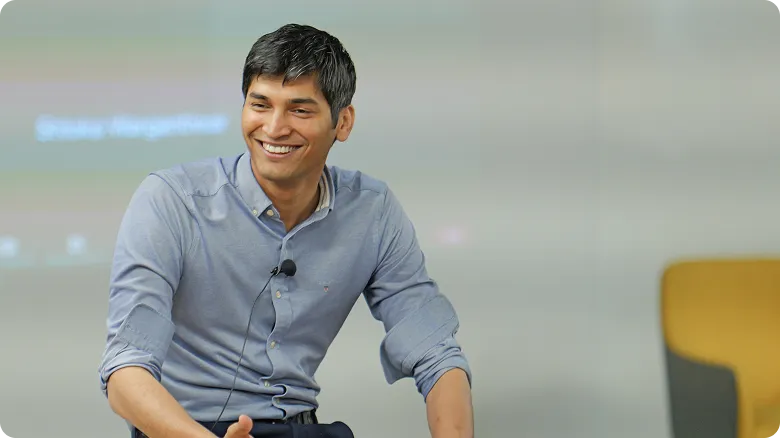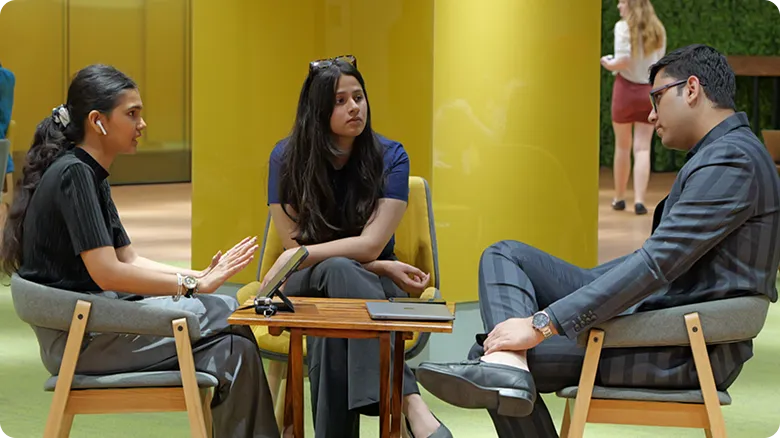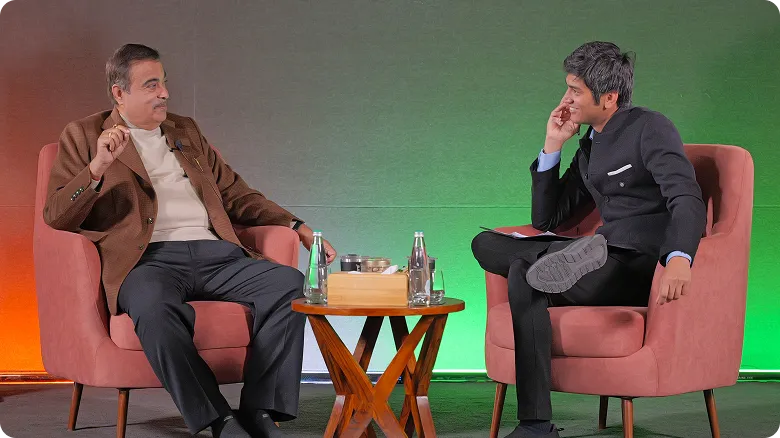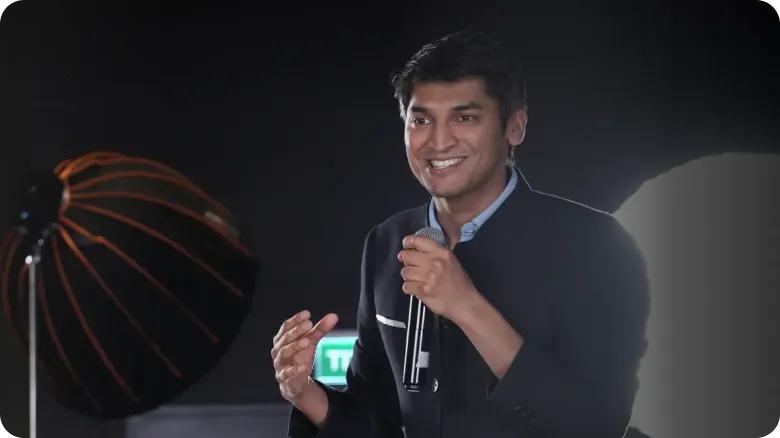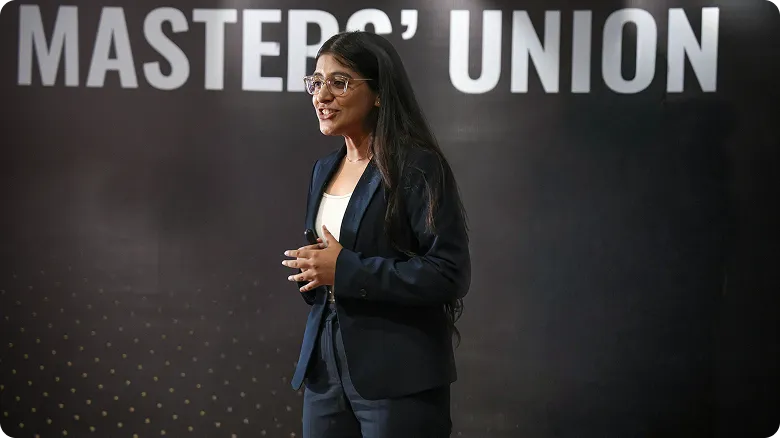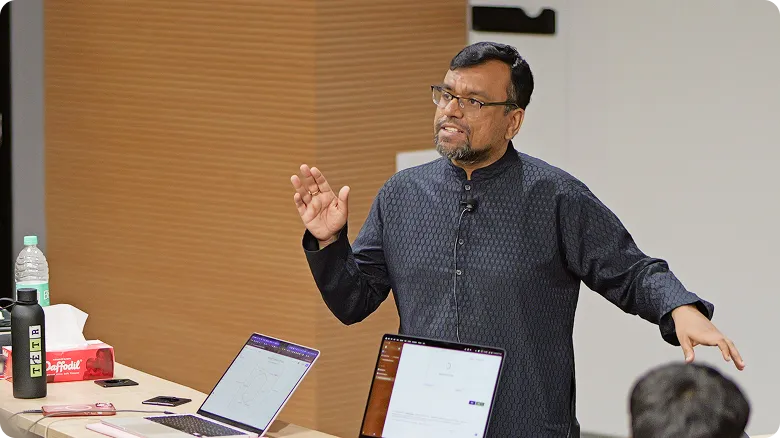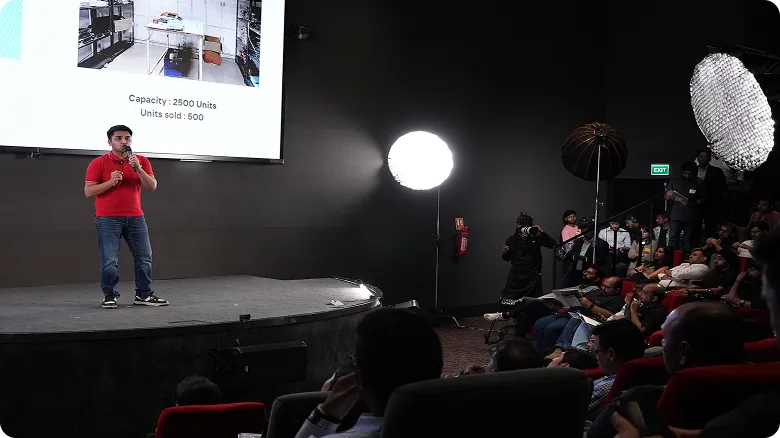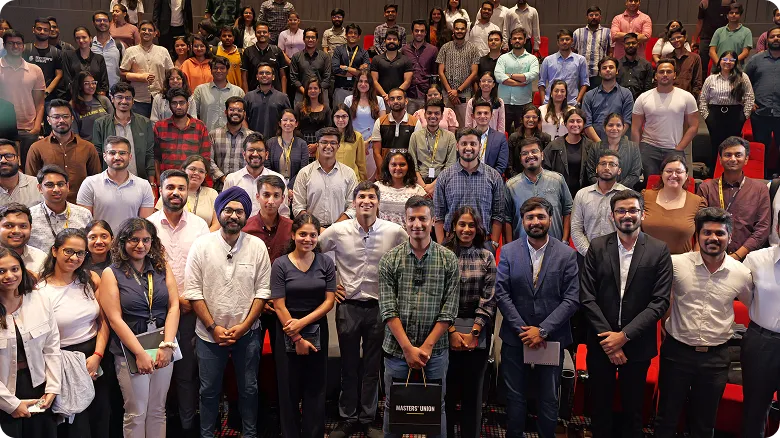Undergraduate
Undergraduate (Global)
Postgraduate
PGP in Technology and Business Management
PGP in Technology & Business Management
(Young Leaders Cohort)
PGP in Human Resources & Organisation Strategy
PGP in Sports Management & Gaming
PGP in Applied AI & Agentic Systems
PGP in UI/UX & Product Design
PGP in Sustainability & Business Management
PGP Bharat
Executive
Family Business
Careers
Innovations
Faculty
MU Ventures
Enterprise Education
Student Life
Jobs
Become a Master
events
For Companies
Blog
Business
From McKinsey to Swiggy: What Rohit Kapoor learned about building, leading and letting go
June 11, 2025
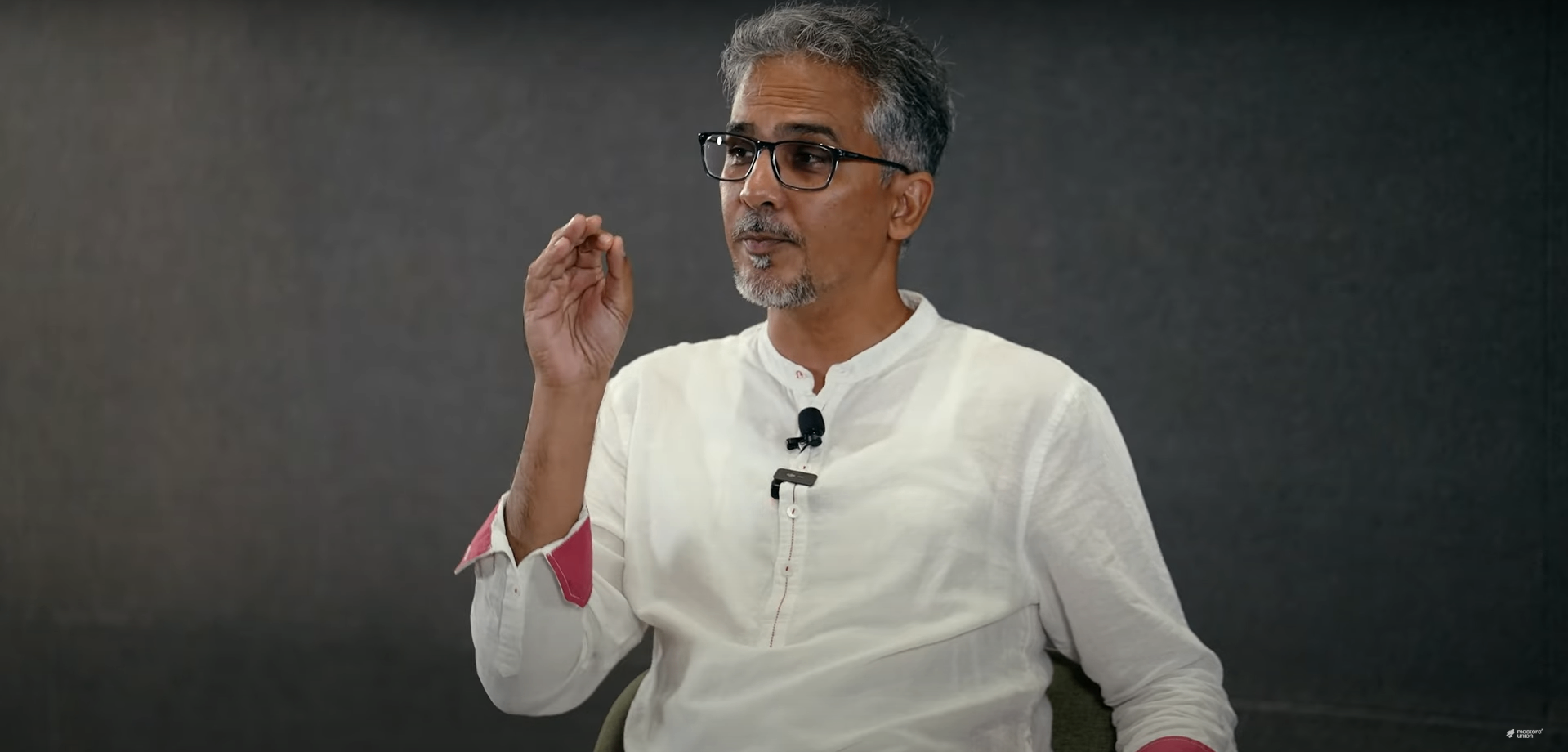
Beyond titles and linear progression, Rohit Kapoor, CEO of food marketplace at Swiggy and former McKinsey consultant, reflects on what makes a career truly meaningful.
Rohit’s journey cuts across structured corporate roles and the unstructured chaos of startups, not as a playbook to follow, but as proof that growth often comes from discomfort and self-inquiry.
In a recent fireside chat, Rohit dismantles traditional views on success and shares the operational playbooks he followed to shape some of India’s most ambitious companies.
Want to watch the video instead?
Rohit joined us on campus for a fireside chat and discussed the operational differences and branding approach of OYO and Swiggy. Watch the podcast to learn from his success blueprint:
How careers evolve: From consulting to Swiggy
Rohit began his journey as a Consultant at McKinsey, where he quickly picked up the foundations of structured thinking, clear communication and client management. But rather than follow the usual route of going from consulting to strategy to VC, he eventually eased into startups.
His transition was shaped less by external opportunities and more by an internal need for pace and change. “At some point, I realised I had hit a plateau,” he says. “It wasn’t a rational analysis, just a silly internal benchmark of speed.” This insight matters.
Many professionals chase linear growth, but Rohit’s story shows that meaningful shifts often come from introspection. His leap from corporate to Swiggy wasn’t just about joining a tech company. It was about seeking a space where execution mattered more than hierarchy, and where problems weren’t just strategic puzzles but daily firefights that required swift action.
The reality of building at startups
Rohit explains that startups are not just smaller versions of large companies. The rules are different. Performance is everything, and the room for underperformance is close to zero. Startups demand both innovation and outstanding execution, and you need to get things done fast and done well.
One of the major mindset shifts Rohit experienced was around technology. Unlike traditional sectors where tech supports operations, technology drives scale in startups.
Rohit recalls that designing digital-first processes and adding human layers where needed became a guiding principle at Swiggy. It’s a way of thinking that challenges leaders to unlearn legacy methods and build with speed, clarity and product thinking at the centre.
Equally important is the team. Rohit offers a clear-eyed take on talent management, arguing against the myth that only “A players” matter. He says that you need a healthy mix where B players who are eager to grow can be just as important.” It’s this balance between aspiration and ability that allows teams to sustain performance without burning out or breaking down.
Swiggy vs OYO: Operational changes and challenges
In Rohit’s view, no two startups are built the same, and operational models often determine how leadership must adapt. His stint at OYO offered a sharp contrast to his current role at Swiggy, revealing just how differently two high-growth companies can function under the hood.
With thousands of partner hotels across cities, and delivery of the brand promise resting with franchisees, OYO demanded deep operational rigour. Local teams, field processes and partner alignment were critical. Rohit admits that the product wasn’t fully in their control, which meant scaling took time and required layers of compliance, quality checks, and negotiation.
In contrast, Swiggy operates as a technology-first marketplace. Every transaction is captured digitally. If something goes wrong, the company knows in real time and can act on it immediately. "You can control the end-to-end experience," Rohit explains. This level of control enables faster decision-making, higher service quality, and constant iteration.
But control comes with pressure. Mistakes are more visible. Feedback loops are shorter. And expectations from customers and leadership are higher. Leaders must adapt their playbook based on the kind of company they’re building, not just its stage or size.
Leading with trust: Founders and professional CEOs
As startups scale, the founder-CEO dynamic comes under pressure. Rohit addresses this directly, calling for mutual respect and clarity of roles. “Founders have to ask themselves—am I the best person to lead the company right now?” he says. His belief is that founders do best when they stay close to their strengths—product, vision, innovation—and bring in professional leadership to handle operations, compliance and scaling.
This isn’t about giving up control. It’s about growing together. Rohit sees the best founder-CEO partnerships as ones where trust, communication and shared goals are firmly in place. It also protects culture—an often overlooked asset—as the company grows. When founders and CEOs work in tandem, decisions are faster, tensions are fewer, and teams perform better.
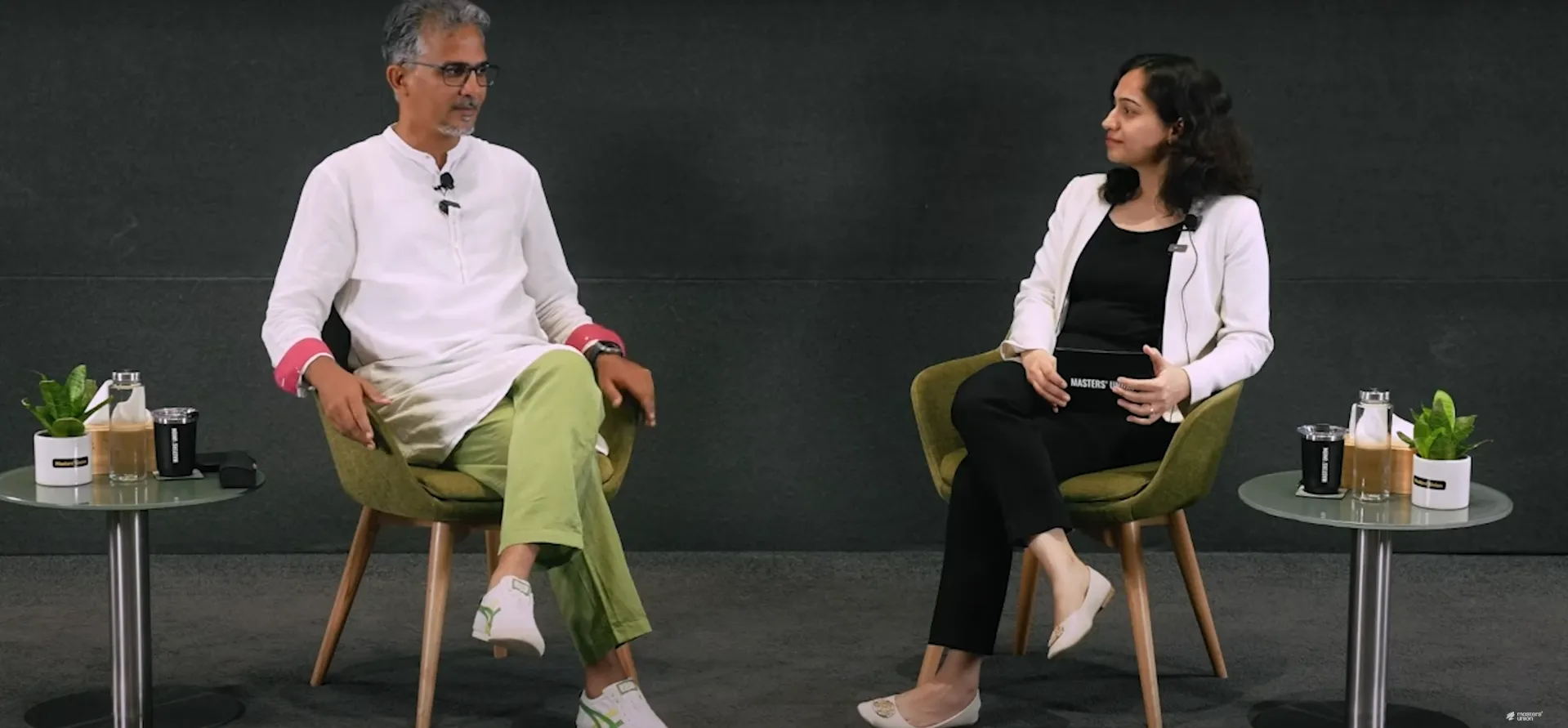
Rethinking management education
Rohit is critical of the way many business schools still operate.
“The case study method feels outdated,” he says. Instead, he argues for a curriculum grounded in problem-solving, communication, financial literacy, and people management, with a heavy dose of real-world exposure. He also emphasises the need to teach independent thinking, especially in a time when social media often shapes opinions more than first-hand experience.
His own MBA experience at IIM Ahmedabad taught him the value of relationships and intentional focus. “It’s easy to stay busy with everything,” he says, “but the real value comes from focusing on academics, clubs, or leadership roles, and doing it well.” For today’s students, he recommends prioritising depth over breadth, and use the MBA as a space for introspection, not just networking.
Indian startups need their own playbook
Rohit concluded the fireside chat by talking about the Indian startup ecosystem. He believes it’s unwise to directly compare India with the USA or China. “We have different constraints, different consumer behaviours,” he says. “Our models will evolve in our own way.”
He encourages founders to stop chasing originality for the sake of it, and instead focus on building businesses that respond to real needs, with room for experimentation, failure and slow scaling.
He also urges professionals and students to avoid “safe” choices that offer comfort without growth. “Careers are not ladders anymore, they’re jungle gyms,” he says. The freedom to explore, switch directions, and take smart risks is what builds long-term success.
Balancing ambition with introspection
Perhaps the most lasting takeaway from Rohit's story is the idea that ambition and introspection must go hand in hand. You can aim high, switch jobs, and chase challenges, but you also need to slow down, reflect, and course-correct. Beyond hustling nonstop, it’s about moving with intention.
His journey from McKinsey to Swiggy isn’t a formula. It’s a reminder that careers are made not by checking the right boxes, but by asking the right questions.
Are you learning? Are you growing? And most importantly, are you still enjoying the ride?




